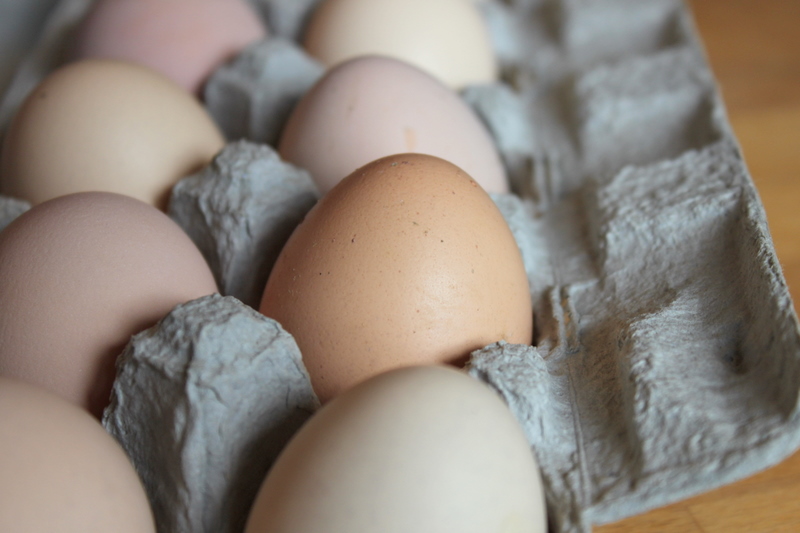 I was ready to write a quick post about how you shouldn't necessarily be motivated by fear a Salmonella bacteria outbreak to switch over from eating factory to free ranged eggs. I was going to describe all the great benefits including the lower cholesterol, higher omega 3 fatty acids, and lower saturated fats you can enjoy in truly free range eggs.
I was ready to write a quick post about how you shouldn't necessarily be motivated by fear a Salmonella bacteria outbreak to switch over from eating factory to free ranged eggs. I was going to describe all the great benefits including the lower cholesterol, higher omega 3 fatty acids, and lower saturated fats you can enjoy in truly free range eggs.
Being a studious blogger, I decided to confirm what I was already sure I knew: my backyard eggs could never carry salmonella. I was surprised to learn that I was totally wrong.
The US Centers for Disease Control assert that salmonella is transmitted from the hen to the egg during egg production inside the body. It then lays dormant in the egg until the egg is cracked and used for cooking. A salmonella infected egg may not look any different than any other egg.
Salmonella occurs more commonly in factory farmed eggs because of several factors. First, the hens are usually less healthy and spread disease among themselves, causing a higher percentage of hens laying salmonella infected eggs.
Factory farmed eggs are washed immediately, which removes the protective bloom that is naturally found on freshly laid eggs. According to the Maine Organic Farmers and Gardener's Association, the bloom not only serves as a barrier to bacteria, but makes the eggs stay fresh at room temperature. Washed eggs have more porous shells, making them more susceptible to soaking up some salmonella bacteria during processing.
Oh, the processing. Factory farm eggs are then sorted by size, packaged into containers, trucked all over the country, and distributed to grocery stores. At all points in processing the multitude of eggs, slight mistakes in handling including keeping eggs above refrigerated temperature, can spread salmonella bacteria.
Some advocate for pasteurization, others spread the myth that backyard eggs are best. In an NPR report, the director of Denmark's National Food Institute asserts that "Shell eggs, we can say with rather great certainty, are essentially free from Salmonella enteriditis." The way Danes achieve this certainty is by frequent testing and culling (that is slaughtering) of any flock found to test positive for salmonella in the laying hens.
Thorough cooking kills salmonella, or so I thought. It turns out that according to Humphrey et al (1989), some home cooking methods kill salmonella in some concentrations. In some infected eggs, no amount of cooking can eliminate all traces of salmonella bacteria.
So, what's a conscious consumer to do? Here's my take:
1) Acquire pastured fresh eggs from someone you know, either a backyard chicken raiser or a farmer at the farmer's market. At the very least you will reap the nutritional benefits of free ranged eggs.
2) Consider buying with the bloom on. Many farmers will gladly skip the washing step.
3) Avoid raw eggs (including runny yolks) if you are young, old, immune suppressed or pregnant, or serving those risk groups.
4) If you are not in these groups, don't panic. Enjoy an over easy egg once in awhile. Contracting salmonella probably won't kill you.
